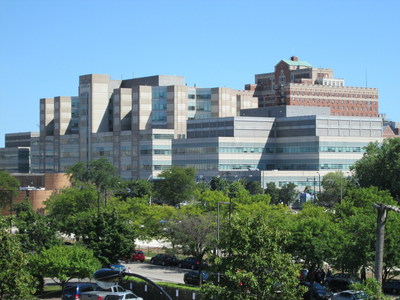New Report Shows Opportunity Zones Can Fuel Illinois Medical District Growth

CHICAGO, Feb. 12, 2020 /PRNewswire/ — Federal tax incentives can attract private capital to build thriving mixed-use, “live-work-learn-play” environments to support life-science and business growth, according to a 2019 study commissioned by the Illinois Medical District. This makes the IMD an ideal location to support Mayor Lightfoot’s economic development plan announced Dec. 9; it can act as a gateway to funnel such development to Chicago’s South and West Sides.

“Innovation districts have the unique potential to spur productive, inclusive and sustainable economic development,” and, given its location, “the IMD (offers Chicago) the best economic opportunity to revitalize the West and South Sides,” former Brookings Institution Centennial Scholar Bruce Katz noted at an opportunity zone conference hosted by County Clerk Anna Valencia in 2019. Katz is director of the Nowak Metro Finance Lab at Drexel University’s Lindy Institute for Urban Innovation.
The IMD has everything needed to support a large and thriving health innovation district, the Kaufman, Hall & Associates market study concludes. Its assets are detailed in an IMD white paper released today. The influx of capital will support not only medical lab space but also a range of residential and commercial developments surrounding Rush University System for Health, UI Health and other medical institutions.
Opportunity Zones Attract Private Capital
Qualified Opportunity Zone tax incentives are available in a designated area of the IMD, which is a state-chartered entity and administrates the area’s land development. Funds invested in opportunity zones qualify for special capital gains tax treatment, and property appreciates tax free if held for over 10 years. The tax incentives made private capital available for new development at Pilsen Gateway apartments.
The new source of investment has the potential to create not only a robust life sciences innovation center but also a vibrant mixed-use, after-hours scene that will make the entire area attractive to further development focused on live-work-learn-play. In turn, such development will spread to Chicago’s contiguous South and West Sides.
The white paper identified top expansion opportunities for the IMD through interviews with medical and business stakeholders. There is high market demand for the following support services:
- Greater capacity to support life sciences industry and discovery;
- Life sciences incubators “layered on” medical lab space;
- A purpose-built data center or collaborative education space; and
- Analytical training and retraining for healthcare workers.
West Side Makes Inroads as ‘Innovation District’
The IMD was compared to established and emerging “innovation districts” that connect established companies with startups, business incubators and accelerators. The city’s transit and fiberoptic networks in the IMD give the West Side an edge, and the 9.5-acre Gateway development at Damen Avenue and Harrison Street stands to expand the IMD’s options for offices, medical labs, restaurants and affordable housing.
Other findings in the report show that the needs of current anchor providers represent the strongest near-term opportunity to catalyze mixed-use development and the IMD is eager to work with its development partners to support the growth and development of its anchor providers.
Noting the IMD’s low public visibility and emergence of other life-science developments, the study identifies a need for continued public exposure. The IMD is in the process of raising its profile by educating stakeholders about infrastructure plans and neighborhood safety. As the white paper concludes, the IMD and its development partners must collaborate to widen its base of support to realize the vision of an innovation district.
About the Illinois Medical District
The Illinois Medical District (IMD) is a community of health, technology and life science organizations in the heart of Chicago, two miles west of the Loop on 560 acres. Every day, more than 80,000 people visit the IMD, including more than 29,000 employees. With $220 million in annual research funding, the IMD generates $3.4 billion in economic activity each year. The IMD offers partners a unique ecosystem of knowledge, collaboration and resources, plus something more: the opportunity to impact the world’s next great healthcare innovation district. Together, IMD partners accelerate discovery and commercialization that is reshaping the practice of all life sciences, generating prosperity for everyone.
Download the white paper here: http://medicaldistrict.org/wp-content/uploads/2020/02/imd-white-paper-kha-study_final.pdf
Contact: Ryan Gage, Director of Marketing and Communication, (312) 738-5829
![]() View original content to download multimedia:http://www.prnewswire.com/news-releases/new-report-shows-opportunity-zones-can-fuel-illinois-medical-district-growth-301003808.html
View original content to download multimedia:http://www.prnewswire.com/news-releases/new-report-shows-opportunity-zones-can-fuel-illinois-medical-district-growth-301003808.html
SOURCE Illinois Medical District

